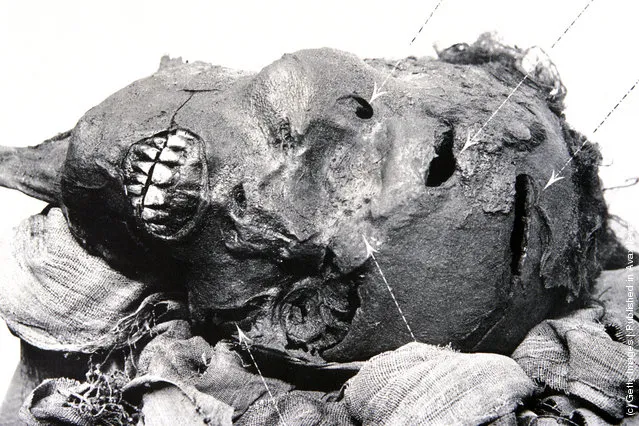
Seqenenre Tao II, (also called Sekenenra Taa) at Cairo Museum, Egypt. The pharaoh of the 17th dynasty was killed on the field of battle. The image shows the marks from the axe blow and the two spear thrusts that brought about his death. (Photo by Patrick Landmann/Cairo Museum/Getty Images)
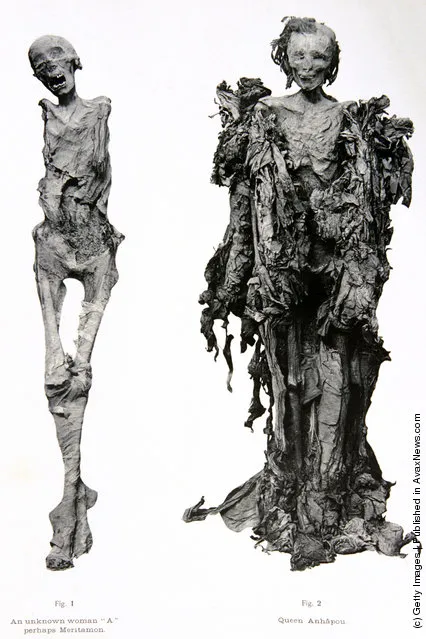
Queen Anhapou (R) and a unknown woman (L) at Cairo Museum, Egypt. Photograph shows the rough techniques used for unbandaging mummies at the turn of the 20th century. (Photo by Patrick Landmann/Cairo Museum/Getty Images)
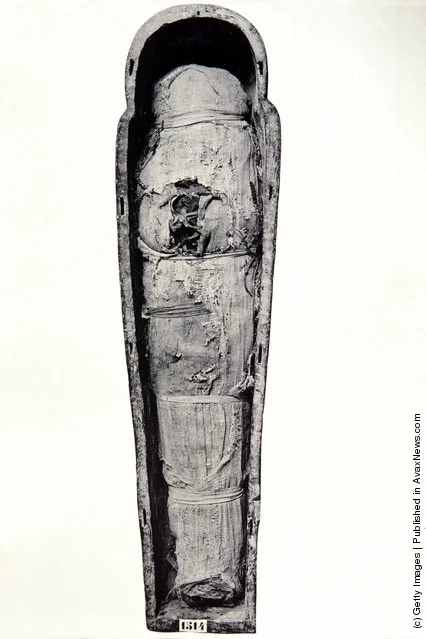
Photograph shows an opening in the mummy's linen made by pillagers in order to steal charms made of gold or other precious material at Cairo Museum, Egypt. (Photo by Patrick Landmann/Cairo Museum/Getty Images)
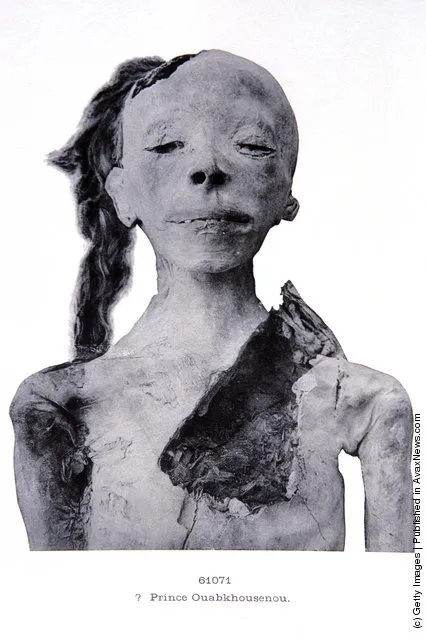
A mummy that is thought to be Prince Ouabkhousenou at Cairo Museum, Egypt. Pillagers cut and opened his thorax and head hoping to find treasures. (Photo by Patrick Landmann/Cairo Museum/Getty Images)
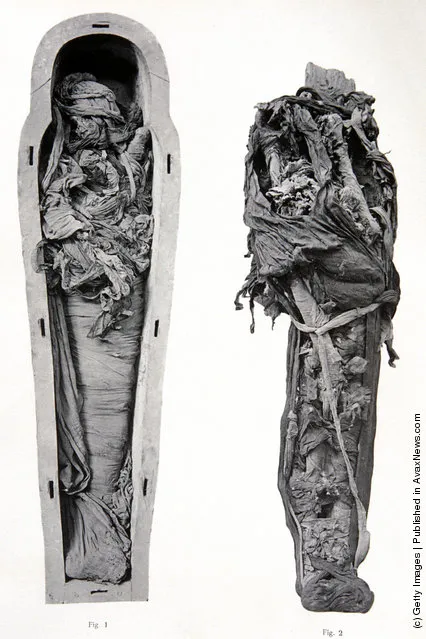
Ramses VI at Cairo Museum, Egypt. Photograph shows the rough techniques used for unbandaging mummies at the turn of the 20th century. (Photo by Patrick Landmann/Cairo Museum/Getty Images)
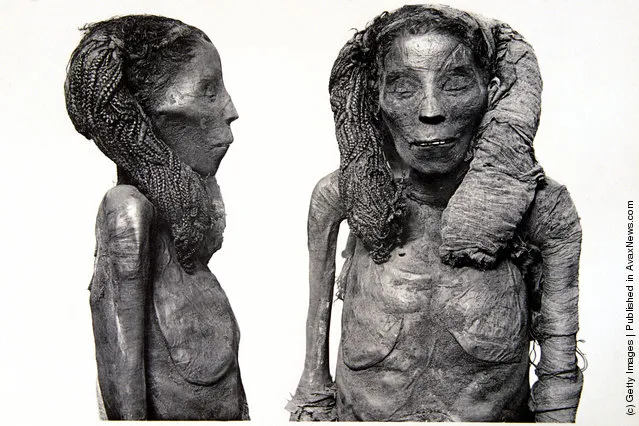
The mummy of the Dame Rai, thought to perhaps be the mother-in-law of Sethi I (19th dynasty) at Cairo Museum, Egypt. (Photo by Patrick Landmann/Cairo Museum/Getty Images)
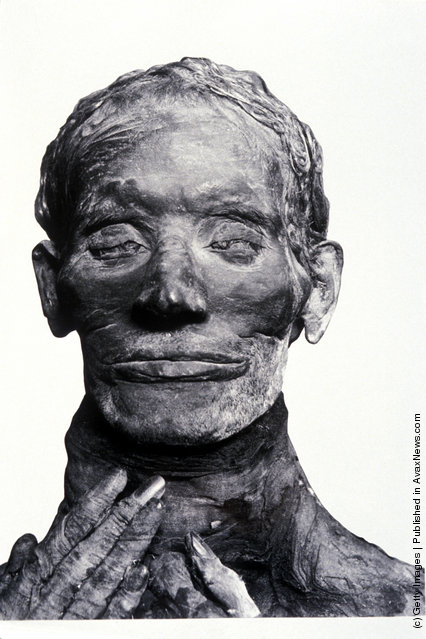
The mummy of Yuya thought by some to be Josua who, after Moses, led the Hebrews into the Promised land and logically would be the father-in-law of Amenophis III, at Cairo Museum, Egypt. (Photo by Patrick Landmann/Cairo Museum/Getty Images)
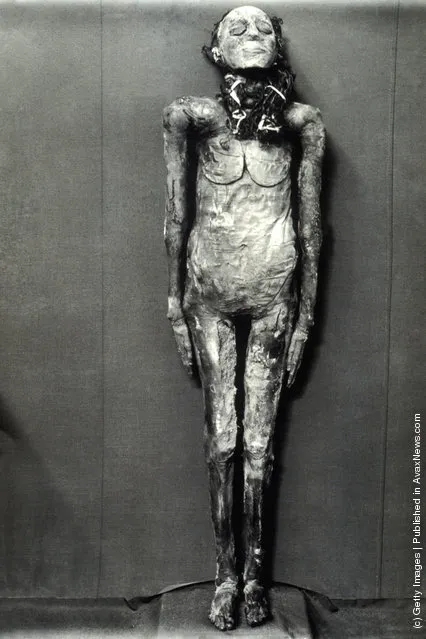
An unknown mummy at Cairo Museum, Egypt. At the beginning of the century mummies were placed upright against a wall in order to photograph them. This is no longer allowed. (Photo by Patrick Landmann/Cairo Museum/Getty Images)

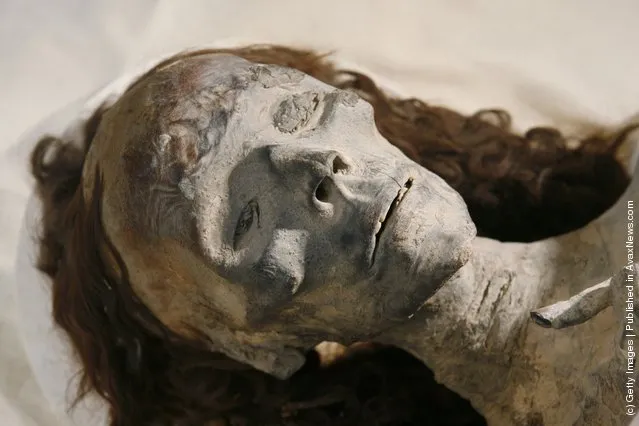
In this handout photo provided by the Discovery Channel, Mummies King Tutankhamun's grandmother on display during a press conference by the head of the Egyptian Supreme Council of Antiquities to announce DNA results meant to reveal the parentage of Egypt's famed King Tutankhamun at the Egyptian Museum on February 17, 2010 in Cairo, Egypt. Two years of DNA testing and CT scans on King Tutankhamun's 3,300-year-old mummy and 15 others have provided the cause of death and the firmest family tree yet for Tut, pointing to Pharaoh Akhenaten as Tut's father, Akhenaten's sister as Tut's mother, and Queen Tiye as Tut's grandmother. (Photo by Shawn Baldwin/Discovery Channel via Getty Images)
22 Apr 2011 08:47:00,
post received
0 comments
